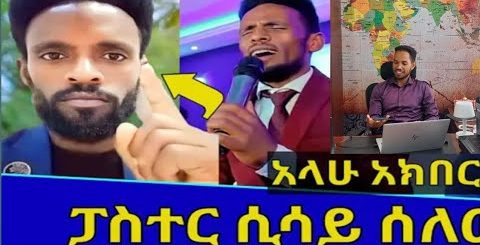Seven Lights of Devotion in Ramadan
Seven Lights of Devotion in Ramadan
Part 1
There are a number of highly recommendable worshipful practices to be performed during the days of Ramadan, for those who seek closeness to their Lord and His Companionship.
Even if in the first part of the month we have missed out on one or more of these acts, we can still make an effort from now to reap their benefits in sha’ Allah.
1- Don’t Forget or Neglect the Pre-dawn Meal (Sahur)
It is recommended to partake of a light meal (Sahur)prior to commencing the fast. The fast begins at first light and ends at sunset (maghrib).
“Eat some food before the fast begins, there is blessing in its partaking.” (Al-Bukhari and Muslim)
Zaid, the son of Thabit related: “We partook of Sahur (food before the commencement of the fast) during Ramadan with the Messenger of Allah and then stood up for prayer.
He was asked what was the interval of time between the two, so he replied: “The time it takes to recite fifty verses (of the Quran).”
.
The Messenger of Allah, praise and peace be upon him, said: “My nation will remain in goodness as long as they break the fast as soon as it is due.” (Muslim).
2- Joy When Breaking the Fast
The fast is broken at sunset, and it is termed in Arabic iftar. It is a time of happiness and refreshment after experiencing the pangs of hunger and thirst.
It is usually broken with dates and in many cultures a light soup with bread or small side dishes. Breaking the fast is followed immediately by the evening obligatory prayer.
In many parts of the world, including the US, breaking fast is observed in congregation in mosques and homes.
The Prophet (peace and blessings be upon him) said: “Whosoever fasts experiences two joys. He is joyful when he breaks his fast, and is joyful because of his fasting when he meets his Lord.”
“When evening approaches from this side (east) and the day retreats from this side (west) and the sun has set, the one who is fasting breaks his fast.” (Al-Bukhari and Muslim)
“Break your fast with a date, or with water because it is pure.” (Abu Daud and At-Tirmidhi)
3- Generosity and Good Deeds During the Month of Fasting
Our beloved prophet, Prophet Muhammad (peace and blessings be upon him), spoke on many occasions about the fast of Ramadan.
He informed us of the way in which we should prepare ourselves as well as urging us to do good, to be charitable, and to refrain from ways in which our fast would become invalid.
Narrated Ibn ‘Abbas: The Prophet was the most generous amongst the people, and he used to be more so in the month of Ramadan when Gabriel visited him, and Gabriel used to meet him on every night of Ramadan till the end of the month.
The Prophet used to recite the Holy Qur’an to Gabriel, and when Gabriel met him, he used to be more generous than a fast wind (which causes rain and welfare). (Al-Bukhari).
Narrated Abu Hurairah: The Prophet said, “Whoever does not give up forged speech and evil actions, Allah is not in need of his leaving his food and drink (i.e. Allah will not accept his fasting.)” (Al-Bukhari).
“Allah, the Mighty, the Glorified says: ‘All the deeds of the son of Adam are for himself, but his fasting is for Me and I shall reward him for it. The fast is a shield. When any of you fasts he should forsake swearing and noise.’”
4- Retreat – i`tikaf
Regarding the retreat, it was the practice of the Prophet (peace and blessings be upon him), to retreat to the Mosque during the last ten days and nights of Ramadan, fasten his cloak around his waist and encourage his family to do the same. His time in the Mosque was spent in worship and not in idle talk.
If it is one’s intention to offer the retreat then there are specific rules to be observed:
Once the intention or vow has been taken to observe these days of continuous retreat, the continuity of its observance is broken if he leaves the mosque without a justifiable necessity, such as to attend a funeral.
However, the observance is not broken when one leaves to go to the toilet. Those in retreat are permitted to renew their ablutions in their own home, but the restatement of the intent must be renewed unless the intention to spend the ten days in advance has been made. Any form of business to and from the mosque is not permissible.
It was the practice of the Messenger of Allah (peace and blessings be upon him), not to leave the mosque except for the call of
‘
nature. Neither would he inquire about a sick person except as he passed by without stopping.
Sleeping, eating, washing hands in the mosque do not invalidate the retreat, nor yet the emergence of a limb or part of the body from the mosque.
Sexual intercourse invalidates the observance of the retreat, but not a non-arousing kiss.
The Messenger of Allah (peace and blessings be upon him), would go into seclusion for (the last) ten days during the month of Ramadan, but the year in which he passed away he went into seclusion for twenty days.
Narrated ‘Aisha: “Allah’s Apostle used to practice `Itikaf in the last ten nights of Ramadan and used to say, ‘Look for the Night of Qadr in the last ten nights of the month of Ramadan’”. (Al-Bukhari)
Narrated ‘Aisha (r) (the Mother of the Believers):” Allah’s Apostle used to let his head in (the house) while he was in the mosque and I would comb and oil his hair. When in `Itikaf he used not to enter the house except for a need.” (Al-Bukhari).
Number of View :2330















